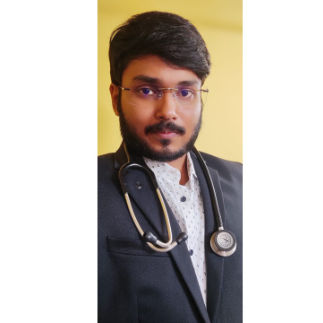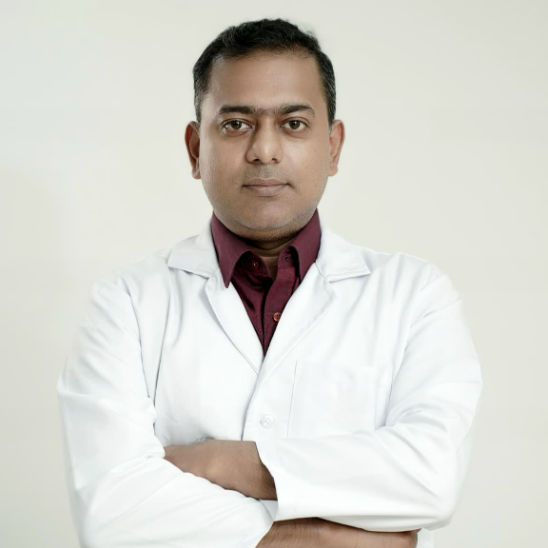Gastric Cancer Causes: Key Risk Factors, Diet, and Prevention Strategies
Understanding the causes of gastric cancer is crucial for prevention and early detection. Learn about risk factors, dietary influences, and lifestyle modifications.

Written by
Last updated on 13th Jan, 2026
Gastric cancer, or as it is commonly known, stomach cancer, is a health condition when malignant cells develop in the lining of the stomach. It ranks high on the list of causes of cancer-related deaths. This means that identifying and intervening early is imperative to ensure that the patient has a chance of survival. The primary risk factors behind this condition are infections, old age, dietary and lifestyle habits, and, in some cases, genetic predisposition. So, knowing about the condition in detail will educate the patients and encourage them to take proactive steps to lower their chances of developing this fatal disease.
Risk Factors for Gastric Cancer
The risk factors for gastric cancer are:
Genetic Predispositions: Hereditary has a strong impact on the development of gastric cancer. Hereditary factors are present in about 10% of cases, and the risk increases in people with a family history of the condition.
Environmental Influences: Risk factors such as diet, smoking, and alcohol intake all have a strong correlation and have an impact on gastric cancer. Intake of salty, smoked, and pickled food and excessive use of alcohol and tobacco have been attributed to an increased risk. On the other hand, consumption of fruits and vegetables can help fight off this condition.
Helicobacter pylori Infection: Helicobacter pylori is a serious risk factor for gastric cancer. This bacterium causes chronic inflammation in the stomach lining, which, over time, may cause atrophic gastritis and other pre-cancerous changes. Eliminating H. pylori is of utmost importance to prevent gastric cancer.
Role of Diet in Gastric Cancer
Gastric cancer is closely associated with dietary practices where foods have been found to either cause or prevent the disease. Knowledge about the effects of the diet is crucial when considering taking preventive measures.
1. Dietary Factors Associated with Increased Risk
Certain dietary habits have been linked to an elevated risk of gastric cancer:
High Salt Intake: Excessive salt consumption can cause ulcers on the stomach lining, thus increasing the chances of cancer.
Pickled and Smoked Foods: Intake of pickled and smoked foods brings some toxic stuff to the stomach, and this causes cancer.
Low Intake of Fruits and Vegetables: Low fruit and vegetable consumption, which are sources of antioxidants and other nutrients, may raise the risk of gastric cancer.
2. Protective Dietary Habits
Conversely, certain dietary practices may help reduce the risk of gastric cancer:
High Intake of Fruits and Vegetables: A diet with lots of fruits and vegetables gives the body antioxidants and nutrients that may help it prevent gastric cancer.
Omega Fatty Acids: Elevated levels of omega-3 and omega-6 fatty acids also lower the risk of cancer, including gastric cancer.
Moderate Consumption of Fermented Foods: Fermented food items like miso may offer health benefits, including promoting gut health and providing antioxidants. However, due to their high sodium content, they should be consumed in moderation.
Helicobacter pylori Infection
H. pylori infection becomes a major risk factor for gastric cancer, influencing its development through various processes.
1. Mechanism of Action in Gastric Carcinogenesis
Chronic Inflammation: H. pylori causes chronic inflammation in the surface of the stomach lining, resulting in DNA alteration and pre-cancerous lesions.
Virulence Factors: The bacteria’s virulence factors, like CagA protein and VacA protein, induce cellular changes that lead to cancer.
2. Prevalence and Treatment Options
Global Prevalence: H. pylori infection affects over 50% of the global population, and it is even more common in developing countries.
Treatment Regimens: First-line therapy consists of antibiotics and proton pump inhibitors. Nevertheless, antibiotic resistance has become a challenge for experts undertaking treatment, thus requiring new options and research.
Smoking and Alcohol Consumption
Lifestyle factors that are determinant to cause gastric cancer include smoking and taking alcohol.
Smoking elevates the risk for the development of gastric cancer, particularly in men. The risk of cancer of gastric cardia has a direct association with the number of cigarettes that an individual man consumes per day.
Alcohol intake, especially excessive alcohol consumption, increases the chances of developing gastric cancer. The dependency of the risk of drinking alcohol concerning gastric cancer varies with gender and the locale of the cancer in the stomach.
The combined effect of tobacco and alcohol in the development of gastric cancer is well established. People who consume excessive smoking and alcohol have five times the risk of developing this condition than those who don’t.
Medical Conditions and Medications
Some medical conditions have been linked to an increased risk of gastric cancer:
Gastritis and Peptic Ulcers: Acute and chronic inflammation of the stomach lining causes gastritis that may develop into atrophic gastritis, a pre-cancerous state of the stomach.
Intestinal Metaplasia is a condition in which the stomach lining cells are replaced with intestinal-like cells, which can lead to the development of stomach or oesophageal cancer.
The use of certain medications may influence gastric cancer risk:
Nonsteroidal Anti-Inflammatory Drugs (NSAIDs): The habitual usage of NSAIDs has been closely associated with the chances of developing gastric cancer.
Socioeconomic and Demographic Factors
Socioeconomic and demographic factors also play a part in the development of this condition.
Geographic Variations: Gastric cancer varies in different parts of the world, especially in East Asia, Eastern Europe, and parts of Central and South America. Such differences depend on the diet and the levels of infection with Helicobacter pylori.
Cultural Dietary Practices: In cultures where the practice of eating a lot of salted, smoked, and pickled foods is prevalent, the chances of gastric cancer also increase. However, cultures with an increased intake of fresh fish, fruits and vegetables were found to have a lower chance of developing this condition.
Age and Gender: The chances of gastric cancer rise with age and is more common in males than in females. This may be explained by hormonal changes, specific life patterns, and their heredity.
Ethnic Disparities: Asian, Hispanic and non-Hispanic Blacks are found to have a higher genetic predisposition to the development of gastric cancer when compared to non-Hispanic Whites.
Prevention and Risk Reduction Strategies
The incidence of gastric cancer can only be reduced through the use of effective prevention and reduction measures like –
Helicobacter pylori Eradication: Screening and eradication of H. pylori has the potential to drastically decrease the prevalence of gastric cancer.
Dietary Interventions: Eating more fruits, vegetables, whole grain foods, and less salted and smoked foods reduces the risk of gastric cancer.
Regular Physical Activity: Success in raising awareness ensures people stick to regular exercise routines that enable them to keep off extra weight. This is a direct policy to lower the risk of gastric cancer.
Alcohol Moderation: The prevention of gastric cancer can be affected by reducing alcohol consumption because regular consumption of alcohol is one of the causes of this disease.
Weight Management: Weight control is also essential, as exercises and a better diet pyramid help to combat the development of gastric cancer.
Future Research and Advances
Molecular genetics and sophisticated diagnostic and therapeutic techniques are significantly improving the diagnosis and treatment of gastric cancer. The latest research has established the gastric cancer gene profile, genetic alterations, and molecular mechanisms that form the basis of targeted therapies. Current investigations also reveal other new biomarkers for early diagnosis and prognosis.
Additionally, advancements in imaging such as the use of AI and 3D imaging guidance are making diagnosis and planning of gastric cancer treatment more precise. Also, targeted therapies like checkpoint inhibitors and certain antibodies have also improved how gastric cancer is being treated.
Conclusion
The determinants of gastric cancer include infections by Helicobacter pylori, tobacco use, excessive alcohol consumption, unbalanced diets, and heredity. However, regular screening tests and improved lifestyle choices like following a healthy diet, daily exercise, and refraining from smoking and excessive alcohol consumption can significantly reduce the risk and enhance results for individuals with symptoms.
Consult Top Oncologists
Consult Top Oncologists

Dr. Sanchayan Mandal
Medical Oncologist
17 Years • MBBS, DNB Raditherapy, DrNB Medical Oncology
East Midnapore
VIVEKANANDA SEBA SADAN, East Midnapore

Dr.sanchayan Mandal
Medical Oncologist
17 Years • MBBS, DrNB( MEDICAL ONCOLOGY), DNB (RADIOTHERAPY),ECMO. PDCR. ASCO
Kolkata
Dr. Sanchayan Mandal Oncology Clinic, Kolkata

Dr Gowshikk Rajkumar
Oncologist
10 Years • MBBS, DMRT, DNB in Radiation oncology
Bengaluru
Apollo Clinic, JP nagar, Bengaluru

Dr. Rupam Manna
Radiation Specialist Oncologist
7 Years • MBBS MD(RADIO THERAPY), CCEBDM
Barasat
Diab-Eat-Ease, Barasat

Dr. Sanchayan Mandal
Medical Oncologist
17 Years • MBBS, DrNB( MEDICAL ONCOLOGY), DNB (RADIOTHERAPY),ECMO. PDCR. ASCO
Kolkata
MCR SUPER SPECIALITY POLY CLINIC & PATHOLOGY, Kolkata